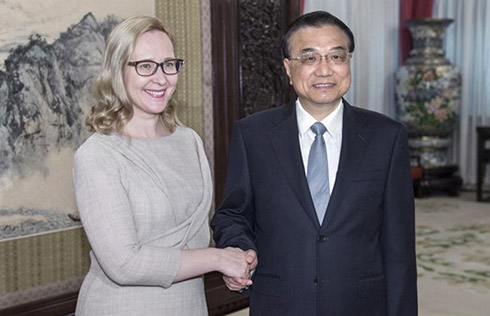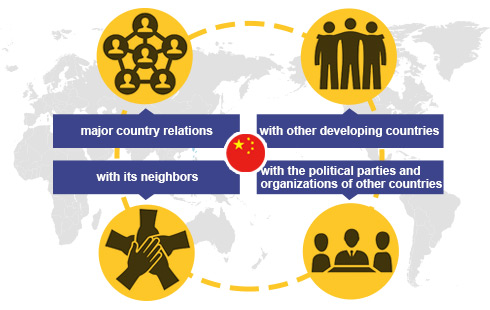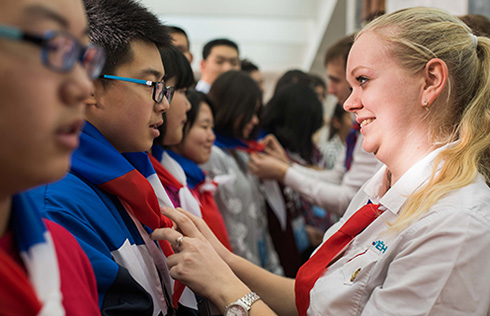Xi-Trump meeting in Beijing to define future China-US ties
BEIJING -?US President Donald Trump will pay a state visit to China from Wednesday to Friday, the first head of state to visit China since the 19th National Congress of the Communist Party of China (CPC).
"STATE-VISIT-PLUS" EXPERIENCE
"We have everything that is required for a state visit, but we want more than that," Chinese ambassador to the United States Cui Tiankai said.
Apart from the red-carpet ceremony, formal talks and banquet, Chinese President Xi Jinping and his US counterpart will have some informal get-togethers, Chinese Vice-Foreign Minister Zheng Zeguang said.
Though the details of these informal arrangements have not been made public, Cui said that there will be "some special arrangements" for Trump and the first family to learn more about Chinese history, culture and people.
During Trump's stay, the two presidents will have sufficient time for the "top-level, strategic conversation," which is "extremely important for the development of bilateral relations", Cui said.
The two presidents spent over seven hours in talks in April in Trump's Mar-a-Lago estate in the US state of Florida.
The informal arrangements will create a good atmosphere for a sound working relationship and personal friendship between the two leaders, said Da Wei, director of the Department of American Studies at the China Institute of Contemporary International Relations (CICIR).
KEY TOPICS
Trade cooperation and the Korean Peninsula are among the key topics for Trump's discussions in Beijing.
Healthy economic and trade ties serve as the base of relations. Trade volume grew from $2.5 billion in 1979 to about $520 billion last year, according to China's Ministry of Commerce.
Zheng said that the solution to the trade imbalance between China and the United States is more US exports to China and increased two-way investment, rather than restricting imports from China.
Economic relations between the two largest economies in the world have been and should continue to be mutually beneficial, said Cui.
China has always advocated denuclearization of the Korean Peninsula, said Zheng, and that the issue should be solved at the negotiating table.
EXPECTED OUTCOMES
After a deal to reopen Chinese markets to US beef in July, part of the 100-day action plan to boost economic cooperation, American beef is back on China's menu.
Since the Mar-a-Lago meeting in April, the 100-day action plan has produced some tangible results.
Progress in bilateral cooperation has also come via four high-level dialogue mechanisms focusing on diplomacy and security; the economy; law enforcement and cyber security; and social and people-to-people exchanges.
US Secretary of Commerce Wilbur Ross is expected to bring a business delegation to Beijing during Trump's visit.
CHINA-US TIES IN NEW ERA
Trump's visit comes shortly after the 19th National Congress of the CPC, which reaffirmed a mutually beneficial, win-win opening up strategy.
The 19th CPC National Congress has outlined the future of China's diplomacy, said Jia Xiudong with the China Institute of International Studies, noting that China-US ties are crucial to the new type of international relations and the community of shared future for humanity.
Since Trump took office, the two leaders have maintained close contact, including face-to-face meetings, phone conversations and sending messages on issues of common concern.
Frequent communication between the two presidents helps avoid misunderstandings, manage differences and strengthen cooperation.
The two presidents will discuss major issues of common concern in Beijing, Zheng said, noting that the meeting is of great significance to Sino-US relations and to peace, stability and prosperity in the Asia-Pacific region and the world.
China and the United States are working to ensure Trump's state visit is a "historic success", Zheng said.



























